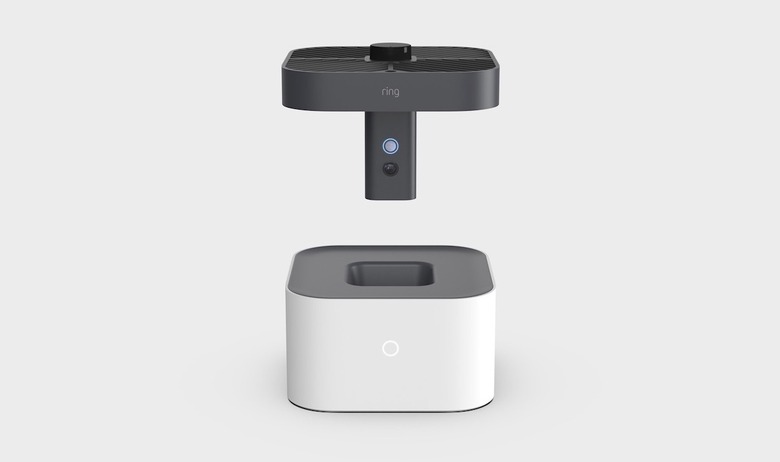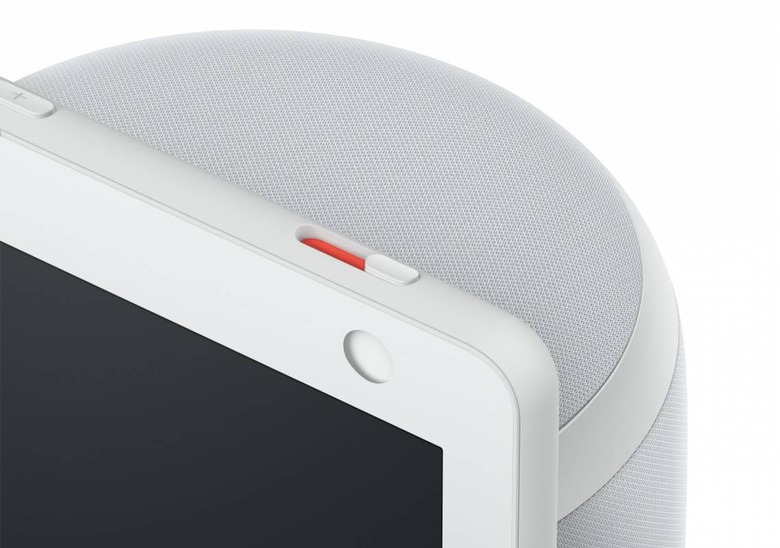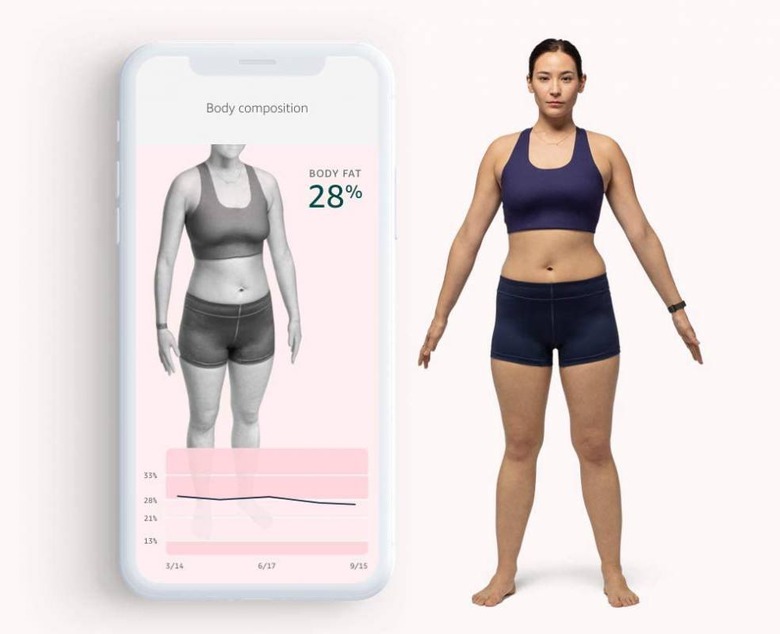Amazon Has A Creepiness Problem
We may receive a commission on purchases made from links.
Amazon is either brazen, blasé, or oblivious to its privacy reputation, and the result is borderline-creepy products like Ring Always Home Cam and the Echo Show 10. Unveiled today in a product-packed event that was punctuated by monologues about how working-from-home has changed the landscape for what we expect from our devices, on the one hand they're a perhaps logical progression of the smart home devices Amazon has already shown us.
At the same time, though, you'd be forgiven for gritting your teeth in discomfort. The Echo Show 10, for example, brings movement to Amazon's smart displays, with a rotating base that promises to track you as you wander around the room. The result? A perfectly-centered video call, or a more attentive Alexa, whether you're stood at the sink or raiding the refrigerator.

Echo Show 10 seems positively pedestrian, though, in comparison to the Ring Always Home Cam. Part drone, part security camera, it launches out of a base station that resembles a fancy fragrance diffuser and then buzzes around your home to spot intruders or misbehaving pets. Never mind wondering whether the microphone on your Echo is disabled: now, the cameras themselves will be airborne.
Of course it's worth noting that Amazon is saying all the right things about the reasons why its new products aren't creepy. The Ring Always Home Cam, for example, will always "hum at a certain volume," Ring points out, so that you should never be surprised by it soaring into view. When you set it up, you can exclusively limit where it can fly, and there's no manual control option that could be co-opted and used to peek into your bathroom or bedroom. Once the drone has landed in its charging dock, meanwhile, the camera is physically blocked.
Echo Show 10, too, has privacy-minded tech behind its unsettling attentiveness. Yes, the pivoting smart display can track you to keep you centered with its 13-megapixel camera, but it does that with "audio-based localization and computer vision" that's all processed locally, on-device, Amazon points out. The images for that are deleted straight after, and the resulting data can't be backtracked to create a photo of you in your pajamas shoveling cereal into your face while Alexa doom-scrolls through the morning headlines. Nothing reaches the cloud, and if you want you can turn it all off with the dedicated privacy shutter or a voice command.
Rationally, nothing Amazon has announced today is any more intrusive or dangerous to privacy than, well, any other smart speaker or connected camera the company has offered before.

All the same, there's a gulf between perception and reality. I could understand you being skeptical about Amazon's intentions – and its technology – simply because it's, well, Amazon. The company that knows so much about your shopping habits it can make pitch-perfect recommendations; the company that wants to put microphones and cameras all over your house, in your car, and in your hotel room. The company that made a wearable that promises to listen to how you speak and figure out if you're stressed or tetchy.
The company that would like you to send it photographs of yourself in nothing but your underwear, so that it can assess your physique.

Much as many people can't accept that Facebook isn't listening to them, Amazon suffers in no small part by virtue of its prevalence. We're a suspicious, paranoid bunch, us humans, and trying to get us to accept that you don't have nefarious goals – even if you're acting with the very best of intentions – is always going to be tough. See, for example of that, Facebook's struggles with taking Portal mainstream and the skepticism around its own person-tracking functionality.
Amazon's vision is of "the ambient home," where AI is everywhere and you don't necessarily need to ask for it first. You talk less, Devices & Services chief Dave Limp suggests, not more. Like a humanistic interaction with a member of the family, Alexa learns from you, asks questions when she doesn't understand something, and tries to be usefully proactive rather than just prescriptively reactive.
For that to work, however, you need to trust the AI. The prevalence of Echo smart speakers suggests that's something people have embraced, but if there's an "uncanny valley" for human-like robots, perhaps there's also one for ambient intelligences. Drones and tracking technology have a back-catalog of more ominous associations to work through and, while Amazon's intentions may be good, it's hard not to be just a little disconcerted at the idea of Alexa gaining her wings.
